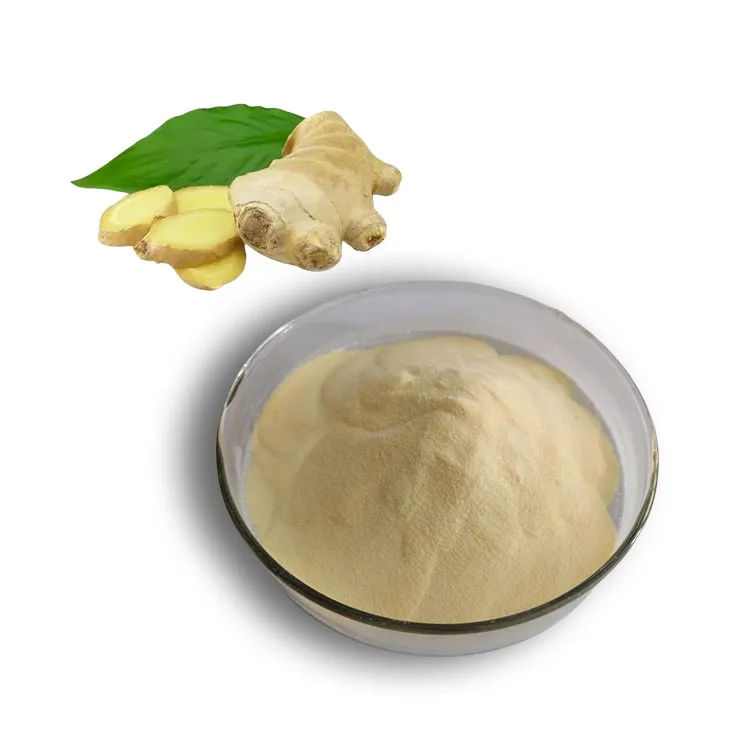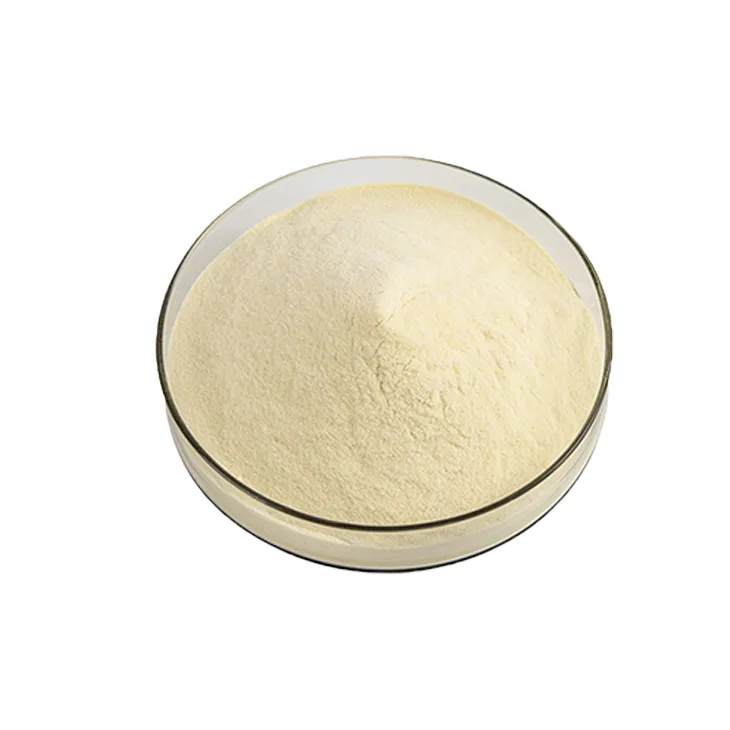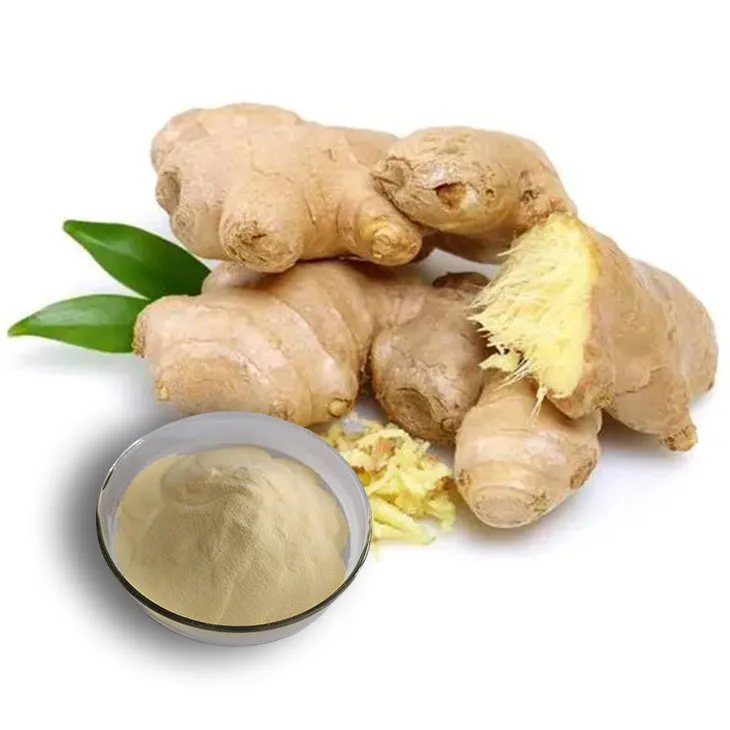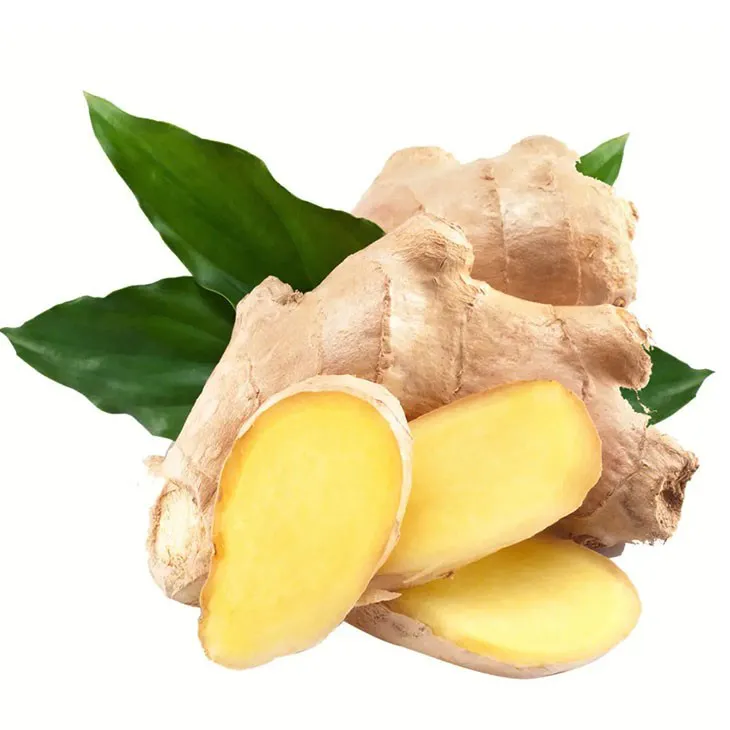- 0086-571-85302990
- sales@greenskybio.com
Ginger Extract: Can It Treat Hair Loss?
2024-11-12

1. Introduction
Hair loss is a widespread issue that affects a significant portion of the population. It can be caused by various factors, including genetics, hormonal changes, stress, and nutritional deficiencies. As a result, many individuals are constantly on the lookout for effective treatments. Ginger Extract has emerged as a potential remedy in the realm of hair loss treatment, with numerous claims surrounding its efficacy. This article aims to comprehensively explore Ginger Extract, analyzing its components, the possible scientific mechanisms behind its purported hair - loss - treating properties, real - world application experiences, and its limitations.

2. Components of Ginger Extract
Ginger contains a rich array of bioactive compounds. Gingerols are among the most prominent components. These are phenolic compounds that give ginger its characteristic pungent flavor. Gingerols possess antioxidant, anti - inflammatory, and antimicrobial properties. Another important component is shogaols, which are formed from gingerols during the drying or heating process of ginger. Shogaols also have antioxidant and anti - inflammatory effects, and they may play a role in the potential hair - loss - treating capabilities of ginger extract.
In addition, ginger extract contains vitamins and minerals such as vitamin C, magnesium, and potassium. Vitamin C is an antioxidant that helps in collagen synthesis, which is important for the health of hair follicles. Magnesium and potassium are involved in various physiological processes in the body, including those related to hair growth and maintenance.

3. Possible Mechanisms for Treating Hair Loss from a Scientific Research Perspective
3.1. Stimulating Hair Follicles
One possible mechanism by which ginger extract may treat hair loss is through the stimulation of hair follicles. Gingerols and shogaols have been shown to have a positive effect on the proliferation of hair follicle cells in vitro. This means that they may encourage the growth and division of cells within the hair follicles, which could potentially lead to increased hair growth. Growth factors such as fibroblast growth factor (FGF) and vascular endothelial growth factor (VEGF) may also be involved. Ginger extract may modulate the expression of these growth factors, which are crucial for the development and maintenance of hair follicles.
3.2. Improving Blood Circulation in the Scalp
Good blood circulation in the scalp is essential for delivering nutrients and oxygen to the hair follicles. Ginger has a warming effect on the body, which may be attributed to its active components. This warming effect can potentially dilate blood vessels in the scalp, thereby improving blood flow. Enhanced blood circulation can bring more nutrients, such as amino acids and vitamins, to the hair follicles, and also remove waste products more efficiently. Studies have suggested that compounds in ginger extract can interact with the endothelial cells lining the blood vessels in the scalp, promoting vasodilation.
3.3. Anti - Inflammatory and Antioxidant Effects
Inflammation and oxidative stress in the scalp can have a negative impact on hair follicles. Inflammatory conditions such as seborrheic dermatitis and folliculitis can lead to hair loss. Ginger extract's anti - inflammatory and antioxidant properties can help combat these issues. The antioxidant compounds in ginger, such as gingerols and shogaols, can neutralize free radicals that are generated during normal metabolic processes or due to environmental factors like pollution and UV radiation. By reducing oxidative stress, the integrity of hair follicle cells can be maintained. Additionally, the anti - inflammatory effect can reduce inflammation in the scalp, creating a more favorable environment for hair growth.

4. Real - World Application Experiences
4.1. Topical Applications
Many people have tried using ginger extract topically for hair loss. Some make a ginger paste by grating fresh ginger and applying it directly to the scalp. Others use ginger - based hair products, such as shampoos or hair oils that contain ginger extract. There are anecdotal reports of individuals noticing reduced hair fall and even some signs of new hair growth after consistent topical use. However, it should be noted that these experiences are highly subjective and vary from person to person.
One of the challenges with topical applications is that ginger can be irritating to the skin for some individuals. Some people may experience redness, itching, or a burning sensation on the scalp after applying ginger - based products. This may be due to the strong nature of ginger's active compounds. Therefore, it is important to do a patch test before applying ginger - based products to the entire scalp.
4.2. Oral Consumption
Consuming ginger extract orally is another way people have attempted to address hair loss. Ginger can be consumed in various forms, such as fresh ginger in tea, ginger supplements, or ginger - flavored foods. Some individuals believe that by improving overall health through internal consumption of ginger, hair health can also be enhanced. There are claims that regular consumption of ginger can balance hormones, which may be beneficial for those with hormonal - related hair loss. However, scientific evidence directly linking oral ginger consumption to hair growth is currently limited.

5. Limitations
5.1. Lack of Sufficient Clinical Trials
Despite the numerous claims and some promising in - vitro and animal studies, there is a lack of large - scale, well - designed clinical trials on the effectiveness of ginger extract in treating hair loss. Most of the evidence currently available is based on small - scale studies or anecdotal reports. Without comprehensive clinical trials, it is difficult to determine the true efficacy of ginger extract and to establish optimal dosages and treatment regimens.
5.2. Individual Variability
People respond differently to ginger extract. As mentioned earlier, some individuals may experience irritation from topical applications, while others may not notice any effect at all, whether through topical or oral use. Genetic factors, overall health status, and the underlying cause of hair loss can all contribute to this individual variability. For example, someone with a genetic predisposition to severe male - pattern baldness may not experience significant hair regrowth with ginger extract alone, as the genetic factor plays a dominant role in this type of hair loss.
5.3. Interaction with Other Medications
If ginger extract is consumed orally, there is a potential for interaction with other medications. Ginger can affect blood clotting, so it may interact with blood - thinning medications. People taking medications for heart conditions, diabetes, or other chronic diseases should be cautious when considering ginger extract supplementation. It is always advisable to consult a healthcare provider before starting any new supplement, especially if one is already on other medications.
6. Conclusion
In conclusion, ginger extract shows potential as a treatment for hair loss based on its components and the possible mechanisms proposed by scientific research. The antioxidant, anti - inflammatory, and potential hair follicle - stimulating properties of gingerols and shogaols are promising aspects. However, the real - world application experiences are mixed, and there are significant limitations. The lack of sufficient clinical trials, individual variability in response, and potential interactions with medications all pose challenges. More research, particularly large - scale clinical trials, is needed to fully understand the effectiveness of ginger extract in treating hair loss and to develop safe and effective treatment protocols.
FAQ:
What are the main components in ginger extract?
Ginger extract contains various components. One of the main ones is gingerol, which is responsible for many of ginger's properties. It also contains shogaol, zingerone, and other minor compounds. These components are thought to contribute to ginger's potential effects on hair loss.
How might ginger extract treat hair loss according to scientific research?
Scientifically, ginger extract may have anti - inflammatory properties due to its components like gingerol. Inflammation around hair follicles can contribute to hair loss, and by reducing this inflammation, it could potentially promote a healthier environment for hair growth. Additionally, it may enhance blood circulation near the scalp. Improved blood flow can bring more nutrients and oxygen to the hair follicles, which are essential for hair growth.
Are there any real - world application experiences of using ginger extract for hair loss?
Yes, there are some real - world experiences. Some people claim that using ginger - based hair products, such as ginger shampoos or topical ginger extracts, has led to a reduction in hair loss and even some regrowth. However, these experiences are often anecdotal and vary from person to person. Some users report that they noticed less hair in their combs or drains after using ginger - related products regularly for a period of time.
What are the limitations of using ginger extract to treat hair loss?
There are several limitations. Firstly, the evidence from scientific research is not yet conclusive. While there are some promising findings, more studies are needed to firmly establish its effectiveness. Secondly, individual responses to ginger extract can vary greatly. What works for one person may not work for another. Also, some people may be allergic to ginger or its components, which can cause adverse reactions on the scalp such as redness, itching, or irritation.
Can ginger extract be used as a sole treatment for hair loss?
At present, it is not advisable to use ginger extract as the sole treatment for hair loss. Hair loss can be caused by multiple factors such as genetics, hormonal imbalances, and nutritional deficiencies. While ginger extract may have some potential benefits, it is likely more effective when combined with other treatments such as a balanced diet, proper hair care, and in some cases, medical treatments recommended by a doctor or dermatologist.
Related literature
- The Potential of Ginger in Promoting Hair Growth: A Review"
- "Ginger Extract and its Impact on Hair Follicle Health"
- "Exploring the Anti - hair Loss Properties of Ginger - Based Compounds"
- ▶ Hesperidin
- ▶ Citrus Bioflavonoids
- ▶ Plant Extract
- ▶ lycopene
- ▶ Diosmin
- ▶ Grape seed extract
- ▶ Sea buckthorn Juice Powder
- ▶ Fruit Juice Powder
- ▶ Hops Extract
- ▶ Artichoke Extract
- ▶ Mushroom extract
- ▶ Astaxanthin
- ▶ Green Tea Extract
- ▶ Curcumin
- ▶ Horse Chestnut Extract
- ▶ Other Product
- ▶ Boswellia Serrata Extract
- ▶ Resveratrol
- ▶ Marigold Extract
- ▶ Grape Leaf Extract
- ▶ New Product
- ▶ Aminolevulinic acid
- ▶ Cranberry Extract
- ▶ Red Yeast Rice
- ▶ Red Wine Extract
-
Sophora Japonica Flower Extract
2024-11-12
-
Grape Leaf Extract
2024-11-12
-
Ginger Extract
2024-11-12
-
Grape Seed Extract
2024-11-12
-
Panax Ginseng Leaf Extract
2024-11-12
-
Withania Somnifera Extract
2024-11-12
-
Horse Chestnut Extract
2024-11-12
-
Ginseng Root Extract
2024-11-12
-
Tamarind extract powder
2024-11-12
-
Saffron Extract Powder
2024-11-12




















